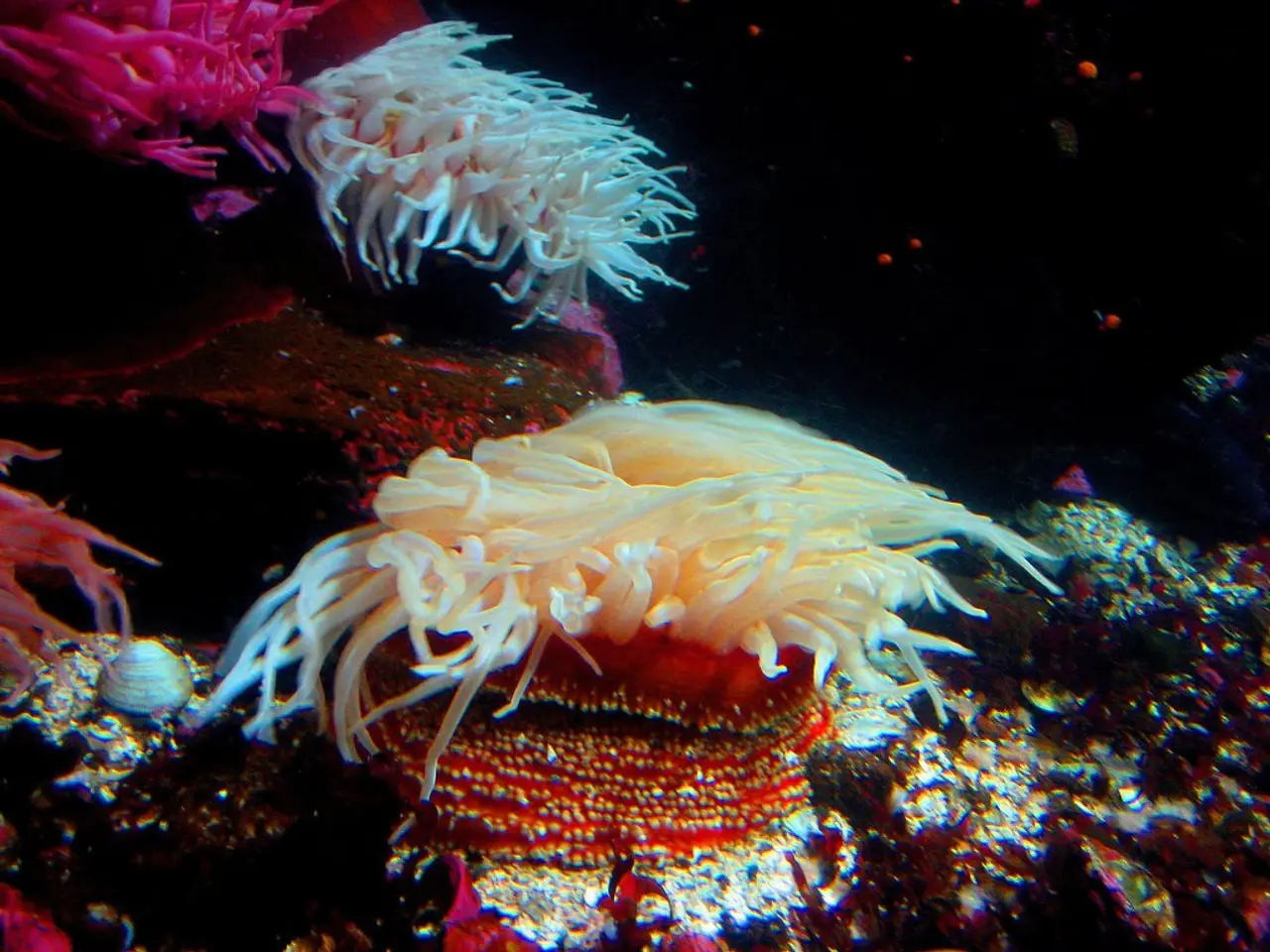Florida's Economy Thrives on Coral Reefs - Restoration Secures Their Long-Term Survival
In the heart of the Sunshine State lies the Florida Keys, a tropical paradise renowned for its vibrant coral reefs and rich marine life. However, these underwater wonders are not just attractions; they form the backbone of the local economy.
The Coral Restoration Foundation, a key player in the region, is making waves with its coral restoration program, which has garnered support from NOAA and other funders. For every dollar invested, the foundation generates an impressive $1.40 in economic ripple effects within the local community.
The foundation's activities, such as hosting volunteer days and restoration dives, aim to make a positive impact on the local community. These events not only inject money into the community quickly but also create opportunities for visitors to engage with the local ecosystem, supporting businesses like restaurants, hotels, and shops.
Coral restoration projects, like the Mission: Iconic Reefs initiative, also bring significant economic benefits. The initiative, funded by NOAA's Office of Habitat Conservation, is adapting to meet the challenges of warming oceans and recent mass coral bleaching events, investing in new technologies and strategies.
One of the key economic benefits is the enhancement of tourism and recreation. Healthy coral reefs attract divers, snorkelers, and other ocean recreation enthusiasts, supporting local businesses and services. The Iconic Reef Guardians program, for instance, offers coral restoration trips led by Blue Star dive operators, providing a new revenue stream for dive shops and raising public awareness about reef health.
Restored coral reefs also act as natural barriers that reduce wave energy and coastal erosion, protecting shorelines and infrastructure. This natural defense helps prevent costly damage from storms and flooding, indirectly saving millions in disaster recovery and property protection costs.
Moreover, coral restoration leads to healthier reef ecosystems that support larger and more sustainable fish populations, benefiting commercial and recreational fisheries with more stable and productive catches. This contributes to the local economy through the fishing industry and related sectors.
The Coral Restoration Foundation's activities also create jobs related to coral farming, nursery maintenance, outplanting, and ongoing monitoring. This boosts the local economy through direct employment and related service sectors.
In summary, coral restoration in the Florida Keys fosters sustainable economic growth by enhancing ecosystem services that support tourism, protect coastal infrastructure, and sustain fisheries vital to local communities. As Patti Mlyniec of Southpoint Divers, a NOAA Blue Star dive operator, puts it, "Coral reefs are crucial for my business and the Florida Keys economy, as they support sea life, fisheries, and tourism."
NOAA and its partners help support nearly 20,000 local jobs through the restoration of degraded reefs within the Florida Keys National Marine Sanctuary. The Coral Restoration Foundation, a restoration partner, is a key contributor to this economic growth, stimulating the local economy and inspiring participants to become stewards of the Sanctuary's reefs and advocates for coral reef restoration.
- The Coral Restoration Foundation, actively involved in environmental-science and sustainable-living, is a significant player in the Florida Keys, contributing to the economy through data-and-cloud-computing, specifically in projects like Mission: Iconic Reefs.
- Science and technology play a vital role in the foundation's work, as they adapt to climate-change challenges and invest in new strategies, providing learning opportunities for career-development and skills-training.
- The restoration of coral reefs benefits not only the environment but also the lifestyle of the community, as it encourages personal-growth through learning about the importance of preserving the ecosystem.
- The recreational fishing industry profits from this work, as healthy coral reefs support larger and more sustainable fish populations, ensuring stable and productive catches.
- The foundation's activities, such as hosting volunteer days and restoration dives, foster career-development in the field of environmental-science, creating jobs related to coral farming and nursery maintenance.
- In addition to supporting local businesses like restaurants, hotels, and shops, the restoration work also indirectly benefits the finance sector by preventing costly damage from storms and flooding.
- Education-and-self-development initiatives, like the Iconic Reef Guardians program, offer opportunities for participants to engage with the local ecosystem, promoting sustainable-living and raising public awareness about reef health.
- The economic benefits of coral restoration extend to the home-and-garden sector, as restored reefs act as natural barriers that reduce wave energy and coastal erosion, protecting infrastructure and properties.




